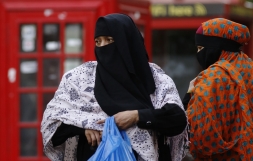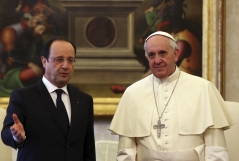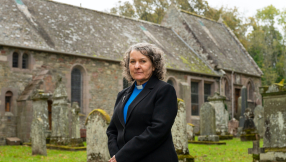The burqa "does not belong" in Germany, the country's interior minister said on Friday as a fierce debate raged over face covering and integration.
Thomas de Maizière, from the Chancellor Angela Merkel's ruling Christian Democratic Union (CDU) and Christian Social Union (CSU) bloc, backed a partial ban on the full veil in a controversial move ahead of key state elections next month.
"We agree that we reject the burqa, we agree that we want to introduce a legal requirement to show one's face in places where it is necessary for our society's coexistence – at the wheel, at public offices, at the registry office, in schools and universities, in the civil service, in court," he told national television.
The partial ban represents a compromise as the veil would only be banned under certain circumstances, as opposed to the total ban in place in France and favoured by Germany's right-wing politicians.
The far-right Alternative for Germany (AfD) party are set to make strong gains in the upcoming elections and de Maizière's softer stance hopes to appease voters unease about security following two recent terror attacks in Germany claimed by ISIS.
De Maizière said the burqa "does not belong in our cosmopolitan country", insisting the ban was about social integration and not security. Merkel is keen not to surrender to the AfD's claim that the influx of more than one million migrants and refugees has threatened Germany's security.
He echoed Merkel's views who said on Thursday: "In my view, a fully covered woman has little chance of integrating in Germany".
De Maizière added: "We want to show our faces to each other and that is why we agree that we reject this – the question is how we put this into law."
Merkel's grand right-left coalition holds an overwhelming majority in Bundestag lower house and de Maizière said he is "likely to win approval".
Only last week he rejected a ban saying: "We can't ban everything that we reject, and I reject the wearing of the burqa."
The change was pushed by two CDU ministers from the regions who have elections next month – rural Meckenburg-Vorpommern and Berlin – where pressure from the AfD is intense.
The compromise is unlikely to become law before next year's parliamentary elections but it may become an election issue as the AfD's rise to prominence continues.

















